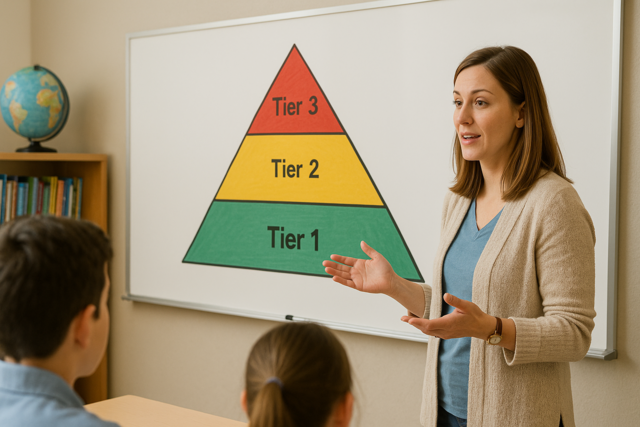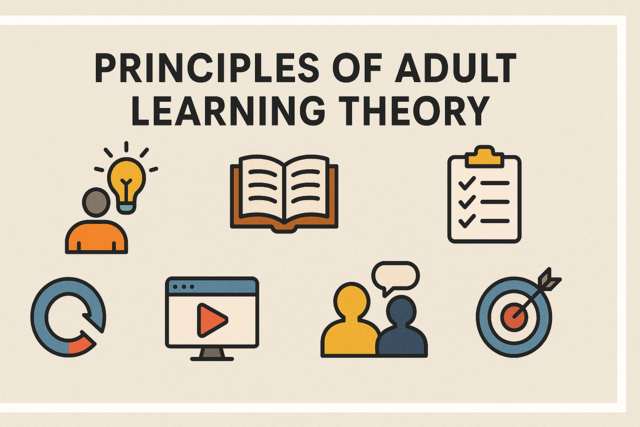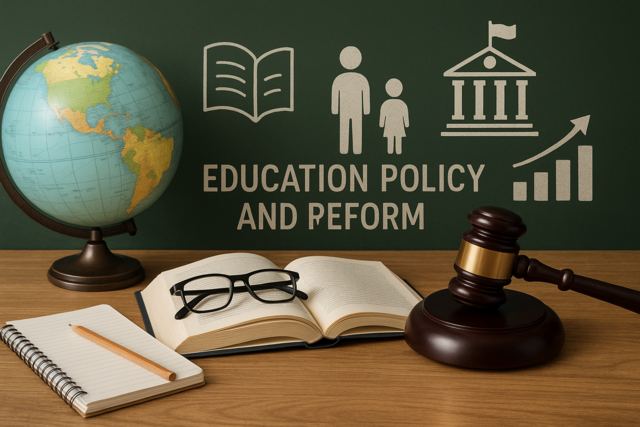Online Class: Understanding Educational Neuroscience

no certificate
with CEU Certificate*
-
15Lessons
-
22Exams &
Assignments -
5Hours
average time -
0.5CEUs
Course Description
Imagine a world where students unlock the fullest potential of their minds, where education is no longer a rigid path but a flexible, dynamic journey tailored to each unique learner. This world isn't a fantasy—it's the frontier of educational neuroscience. Welcome to "Understanding Educational Neuroscience," a transformative course that offers you not just insights but the tools to reimagine learning itself.
In a time when tailored education is more crucial than ever, this course serves as an essential guide to harnessing the power of the human brain for enhanced educational outcomes. Imagine being able to create learning environments that not only foster knowledge but also build resilience and adaptability in students of all ages. As a participant, you will dive deep into the most recent neuroscientific discoveries, unleashing a new understanding of how emotional well-being and cognitive performance intertwine to shape a student's academic journey.
Picture yourself mastering the concept of neuroplasticity—the brain's miraculous ability to reorganize itself by forming new neural connections throughout life. This breakthrough understanding equips you with an ability to transform classrooms and learning platforms into arenas of growth, adaptability, and unlimited potential. Envision implementing strategies that don't just teach knowledge but foster a lifelong love for learning, regardless of one's age or background.
Within this course, you will explore the intricacies of brain adaptation and learning, discovering how critical periods of cerebral development can be optimized. By illuminating essential windows of heightened receptivity, this course empowers you to lay the foundations for a lifetime of expansive cognitive abilities in your students or yourself. Glean insights into crafting precise strategies that maximize developmental potential—key knowledge for educators, parents, and lifelong learners determined to excel in an ever-evolving world.
Moreover, you'll unravel the seamless connection between emotion and cognition, a synergy that plays a pivotal role in unlocking each student's learning potential. By embedding emotional intelligence within educational strategies, this course fosters learners who thrive academically, socially, and personally. This isn't just an abstract approach; it's a powerful method being adopted by innovative educators globally to nurture resilient, empathetic individuals ready to seize life's opportunities.
Leveraging advancements in attention networks and executive functions, you'll chart new territories in personalized learning. Technology and neuroscience coalesce as you delve into how modern educational tools can refine attention management, self-regulation, and working memory. Imagine crafting personalized learning experiences that speak to each student's strengths, setting the stage for unparalleled success in every sphere of life.
As we stride into the era of technology-enhanced learning, you will explore how artificial intelligence is reshaping educational landscapes. From immersive virtual reality experiences to interactive learning apps, the course will guide you through the synaptic leaps afforded by technology that go beyond traditional classroom settings. This is where the future of education is shaped, and you'll be at the forefront.
Another critical facet of our journey delves into stress as a dual-natured catalyst of motivation and educational growth. Learn how to transform classrooms into sanctuaries of inclusivity and support, where stress becomes a propelling force rather than a debilitating barrier. In this safe, nurturing environment, students flourish academically and personally.
"Understanding Educational Neuroscience" offers not just theoretical wisdom but practical, life-altering strategies. Enhance classroom environments, learn to engage diverse learning styles, and establish teaching methods that offer all students an equal opportunity to shine. Discover how sleep architecture and nutritional science are keystones to learning efficiency, ensuring every student's journey is one of health and success.
Finally, engage with the critical ethical considerations at the intersection of neuroscience and education. You'll be equipped to navigate these challenges with student welfare, privacy, and equity as your compass.
In joining this course, you are stepping into a narrative where education evolves with the understanding of the brain—a narrative that promises not only the transformation of minds but the shaping of a brighter future for every learner. Allow "Understanding Educational Neuroscience" to be your guide through this profound and rewarding journey, unlocking a level of educational mastery that sets you apart. Transform the way you see learning, fundamentally improve lives, and become the beacon of change the world of education needs. Now is the time to enroll and redefine the future of learning for yourself and others.
- Completely Online
- Self-Paced
- 6 Months to Complete
- 24/7 Availability
- Start Anytime
- PC & Mac Compatible
- Android & iOS Friendly
- Accredited CEUs

Course Lessons
Lesson 1. Unlocking the Secrets of the Brain for Improved Education
Examining brain function with its regions, emphasizing the cerebral cortex's role and limbic system in learning, the lesson conveys the importance of emotional well-being. Neuroplasticity guides educational methods, accentuating personalized, adaptable strategies for holistic student growth.Lesson 2. Neuroplasticity: Bridging Neuroscience and Education
Neuroplasticity illustrates the brain's remarkable flexibility to adapt through experiences, stressing the importance of environment, practice, and mindset in learning. This understanding equips educators to implement strategies that foster resilience and cognitive development, regardless of age.Lesson 3. Brain Adaptation and Learning: A New Educational Paradigm
Understanding critical periods in brain development illuminates how early exposure to language, emotions, and social interactions shape lifelong cognitive abilities. These windows of heightened receptivity emphasize the value of focused educational strategies to maximize developmental potential.Lesson 4. The Role of Neuroplasticity in Lifelong Learning
Interlinked memory types form the bedrock of educational neuroscience, necessitating a grasp of encoding, storage, and retrieval processes to bolster learning. By engaging students emotionally and leveraging principles like neuroplasticity and the spacing effect, educators can dramatically enhance information retention.Lesson 5. Emotion-Cognition Interactions: Unlocking Learning Potential
As students progress through various developmental stages, recognizing and harnessing the interplay between emotional awareness and cognitive function proves crucial. Embedding emotional intelligence within learning strategies nurtures resilient learners, capable of capitalizing on life's opportunities, thereby enhancing collaboration and empathy alongside cognitive skills in academic contexts.Lesson 6. Attentional Networks and Neuroplasticity: A Dynamic Journey
Utilizing functional magnetic resonance imaging, scientists decode attention's orchestration through specialized brain networks, understanding its crucial impact on learning and work performance. This knowledge supports interventions that dynamically align with neurodevelopmental needs, such as ADHD and aging-related attention shifts.Lesson 7. Executive Functions: Keys to Learning
The integration of educational technology and neuroscience allows for personalized learning experiences that strengthen executive functions like attention management, working memory, and self-regulation. Teachers can cultivate inclusive classrooms by leveraging these insights, setting students up for success in both academic and personal spheres.Lesson 8. The Neuroscience of Stress: A Guide for Students and Educators
Viewing stress as a multifaceted entity, with both harmful and beneficial aspects, can transform it into a powerful motivator rather than an impediment. This paradigm encourages educational systems to foster environments that promote openness, inclusivity, and support to buffer stress and enhance student development.Lesson 9. Neurodiversity in Education: Embracing Unique Minds
Neurodiversity in education supports varied learning methodologies, abandoning traditional assessment techniques in favor of those that showcase students' unique abilities. Such reforms prioritize collaborative projects and tech integration, creating inclusive environments where every student can excel.Lesson 10. Harnessing AI to Catalyze Learning and Adaptation
Through the lens of synaptic and structural plasticity, educational technologies like VR and interactive apps are reshaping how we learn, offering immersive experiences that extend beyond traditional classroom settings. As students explore vivid simulations and interactive modules, their neural pathways strengthen, fostering a deep and lasting understanding.Lesson 11. Brain Power Unleashed: Neuroplasticity in Education
The seamless connection between neuroscience and education reveals the importance of neuroplasticity and attention in effective learning, enabling innovative teaching strategies that optimize student outcomes. By harnessing principles like spaced repetition, emotional engagement, and stress management, educators can create rich, engaging learning experiences that transform student potential.Lesson 12. The Brain's Ability to Learn and Adapt
Educational neuroscience blends insights from cognitive science and psychology to tailor teaching methods that respect diverse learning styles. By fostering environments rich in emotional and social support, students experience enhanced engagement and academic success.Lesson 13. Sleep Architecture: The Blueprint of Learning Efficiency
Sleep, a complex choreography of Non-REM and REM cycles, not only restores physical health but sharpens cognitive acuity. By understanding this relationship, educational institutions can aid students in thriving both academically and personally.Lesson 14. Maximizing Learning Through Nutritional Science
Proteins, carbohydrates, and fats play intertwined roles in neurotransmitter synthesis, crucial for learning, mood regulation, and memory. Additionally, physical activity boosts neuroplasticity, highlighting the imperative connection between diet, exercise, and educational success.Lesson 15. Ethical Implications in Neuro-Ed
The fusion of neuroscience and education presents ethical challenges, prioritizing student welfare when integrating brain research in teaching. Privacy and equity are critical, as misuse of neurological data and access disparities could hinder instead of helping educational initiatives.
Learning Outcomes
- Describe how neuroplasticity influences personalized learning and identify educational strategies that leverage this adaptability to improve cognitive skills throughout different life stages.
- Recognize the key functions of major brain regions, such as the cerebral cortex and limbic system, and their roles in enhancing educational practices.
- Demonstrate the application of neuroplasticity principles by creating a personalized learning strategy that incorporates active learning techniques and growth mindset practices.
- Define neuroplasticity and describe its role in memory and learning by explaining synaptic and structural changes in the brain.
- Define the concept of neuroplasticity and explain its role in lifelong learning and personal development, providing examples from language acquisition and skill mastery.
- Illustrate the impact of critical periods on cognitive and social development, discussing how early interventions and enriched environments can maximize developmental potential in language, vision, and emotional bonds.
- Define the role of working memory in information processing, demonstrating its significance by organizing complex tasks using chunking and other memory techniques.
- Identify key differences between explicit and implicit memory systems, describing how each influences learning through practical examples like riding a bicycle or memorizing facts.
- Define the role of the amygdala in emotion-cognition interactions by identifying its effects on learning under different stress conditions.
- Demonstrate how to integrate emotional intelligence strategies into lesson plans to enhance student engagement and learning retention.
- Describe how positive emotions can elevate dopamine levels and reinforce behaviors that align with successful learning outcomes.
- Define the roles of the dorsal and ventral attention networks in managing goal-directed and stimulus-driven attention, using examples of everyday scenarios.
- Identify key neurotransmitters involved in attention regulation, such as dopamine and serotonin, and describe their effects on cognitive functions like task-switching and focus.
- Demonstrate mastery of lesson content at levels of 70% or higher.
Additional Course Information

- Document Your Lifelong Learning Achievements
- Earn an Official Certificate Documenting Course Hours and CEUs
- Verify Your Certificate with a Unique Serial Number Online
- View and Share Your Certificate Online or Download/Print as PDF
- Display Your Certificate on Your Resume and Promote Your Achievements Using Social Media

Choose Your Subscription Plan
No Certificate / No CEUs
This course only
| Includes certificate | X |
| Includes CEUs | X |
| Self-paced |

|
| Instructor support |

|
| Time to complete | 6 months |
| No. of courses | 1 course |
Certificate & CEUs
This course only
| Includes certificate |

|
| Includes CEUs |

|
| Self-paced |

|
| Instructor support |

|
| Time to complete | 6 months |
| No. of courses | 1 course |
Certificates & CEUs
Includes all 600+ courses
| Includes certificate |

|
| Includes CEUs |

|
| Self-paced |

|
| Instructor support |

|
| Time to complete | 12 Months |
| No. of courses | 600+ |
Certificates & CEUs
Includes all 600+ courses
| Includes certificate |

|
| Includes CEUs |

|
| Self-paced |

|
| Instructor support |

|
| Time to complete | 24 Months |
| No. of courses | 600+ |
Related Courses
-
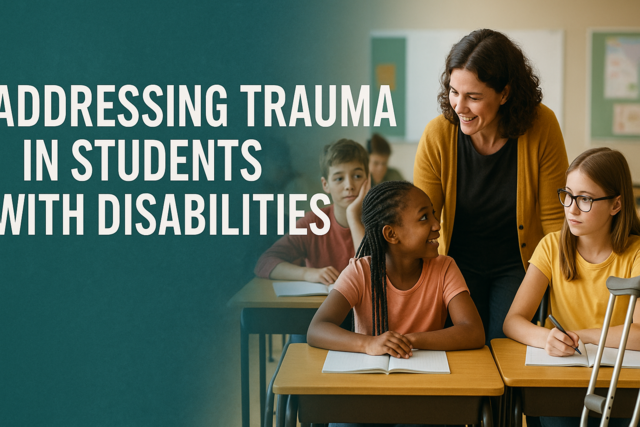 3 hours
0.3 CEUs
Addressing Trauma in Students with Disabilities
+ More Info
3 hours
0.3 CEUs
Addressing Trauma in Students with Disabilities
+ More Info
-
 4 hours
0.4 CEUs
The Use of Analytics in Education
+ More Info
4 hours
0.4 CEUs
The Use of Analytics in Education
+ More Info
-
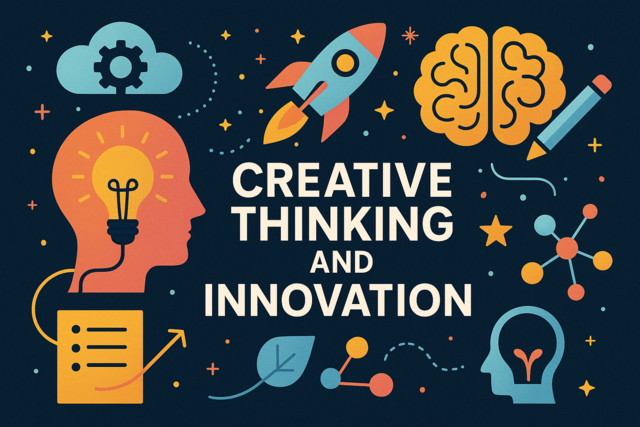 4 hours
0.4 CEUs
Creative Thinking and Innovation
+ More Info
4 hours
0.4 CEUs
Creative Thinking and Innovation
+ More Info
-
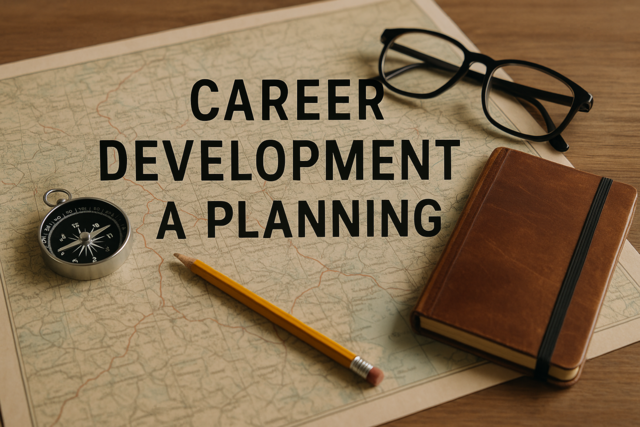 4 hours
0.4 CEUs
Career Development and Planning
+ More Info
4 hours
0.4 CEUs
Career Development and Planning
+ More Info
-
 5 hours
0.5 CEUs
Boosting Productivity with Effective Email Management
+ More Info
5 hours
0.5 CEUs
Boosting Productivity with Effective Email Management
+ More Info
-
 7 hours
0.7 CEUs
The Power of Vulnerability: Authentic Connections in a Busy World
+ More Info
7 hours
0.7 CEUs
The Power of Vulnerability: Authentic Connections in a Busy World
+ More Info
-
 4 hours
0.4 CEUs
Emergency Preparedness and Survival Skills
+ More Info
4 hours
0.4 CEUs
Emergency Preparedness and Survival Skills
+ More Info
-
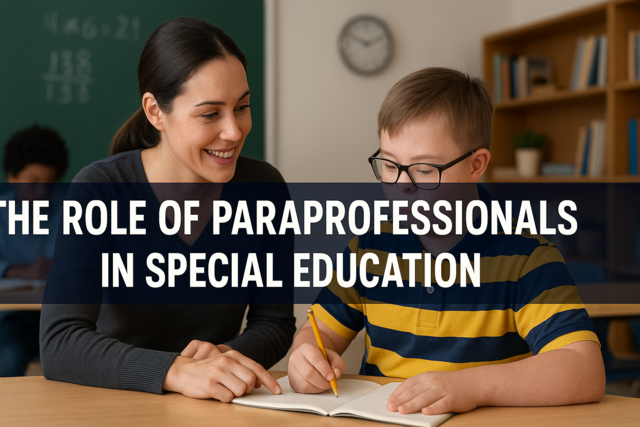 3 hours
0.3 CEUs
The Role of Paraprofessionals in Special Education
+ More Info
3 hours
0.3 CEUs
The Role of Paraprofessionals in Special Education
+ More Info
-
 3 hours
0.3 CEUs
Essentials of Contract Negotiation
+ More Info
3 hours
0.3 CEUs
Essentials of Contract Negotiation
+ More Info
-
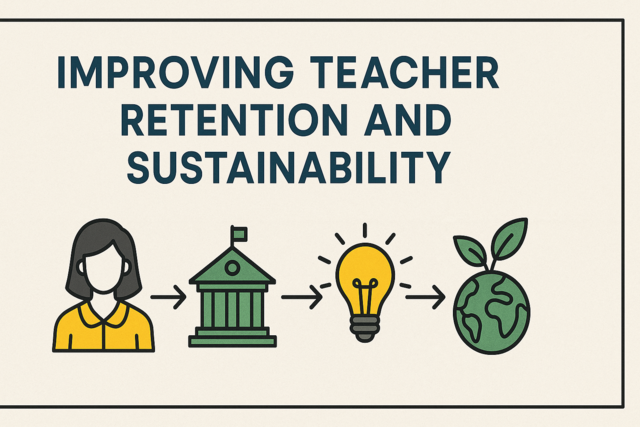 3 hours
0.3 CEUs
Improving Teacher Retention and Sustainability
+ More Info
3 hours
0.3 CEUs
Improving Teacher Retention and Sustainability
+ More Info
-
 5 hours
0.5 CEUs
Building Bridges: Techniques for Intergenerational Understanding
+ More Info
5 hours
0.5 CEUs
Building Bridges: Techniques for Intergenerational Understanding
+ More Info
-
 3 hours
0.3 CEUs
Transcend Trends: Creating Your Signature Look
+ More Info
3 hours
0.3 CEUs
Transcend Trends: Creating Your Signature Look
+ More Info
-
 3 hours
0.3 CEUs
Luxury Layering: The Art of Dressing with Opulence
+ More Info
3 hours
0.3 CEUs
Luxury Layering: The Art of Dressing with Opulence
+ More Info
-
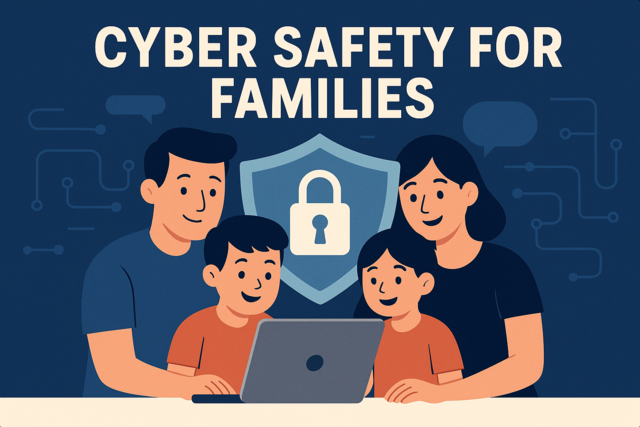 5 hours
0.5 CEUs
Cyber Safety for Families
+ More Info
5 hours
0.5 CEUs
Cyber Safety for Families
+ More Info
-
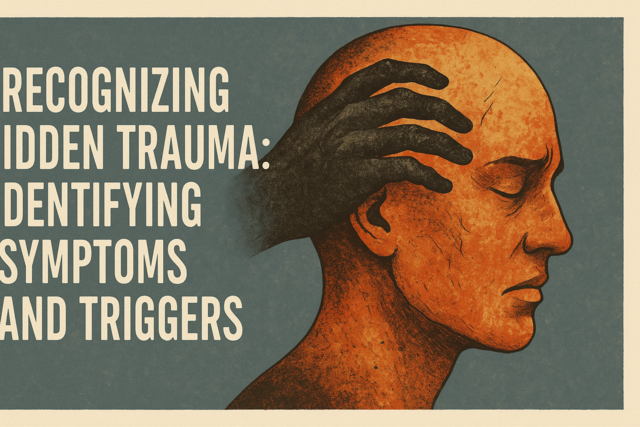 4 hours
0.4 CEUs
Recognizing Hidden Trauma: Identifying Symptoms and Triggers
+ More Info
4 hours
0.4 CEUs
Recognizing Hidden Trauma: Identifying Symptoms and Triggers
+ More Info
-
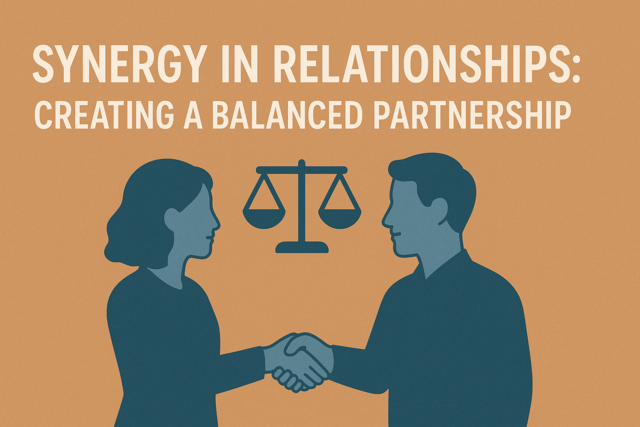 3 hours
0.3 CEUs
Synergy in Relationships: Creating a Balanced Partnership
+ More Info
3 hours
0.3 CEUs
Synergy in Relationships: Creating a Balanced Partnership
+ More Info
-
 6 hours
0.6 CEUs
Public Speaking with Confidence
+ More Info
6 hours
0.6 CEUs
Public Speaking with Confidence
+ More Info
-
 6 hours
0.6 CEUs
Developing Strategic Thinking Skills
+ More Info
6 hours
0.6 CEUs
Developing Strategic Thinking Skills
+ More Info
-
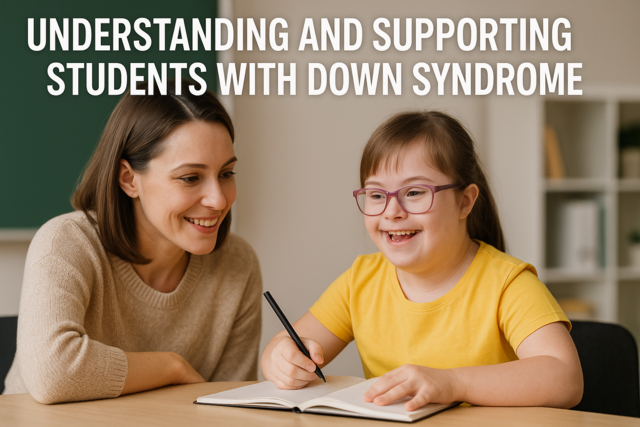 3 hours
0.3 CEUs
Understanding and Supporting Students with Down Syndrome
+ More Info
3 hours
0.3 CEUs
Understanding and Supporting Students with Down Syndrome
+ More Info
-
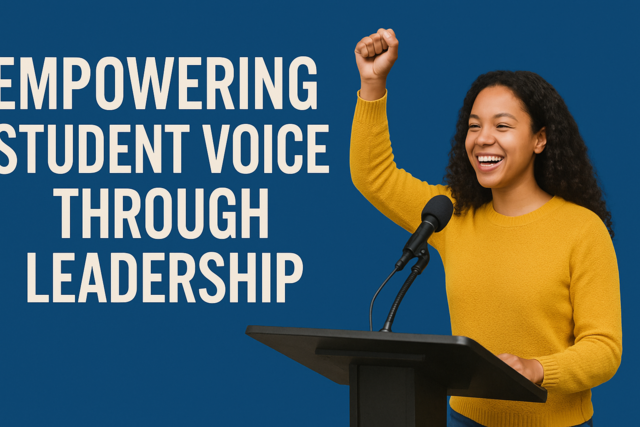 5 hours
0.5 CEUs
Empowering Student Voice through Leadership
+ More Info
5 hours
0.5 CEUs
Empowering Student Voice through Leadership
+ More Info
-
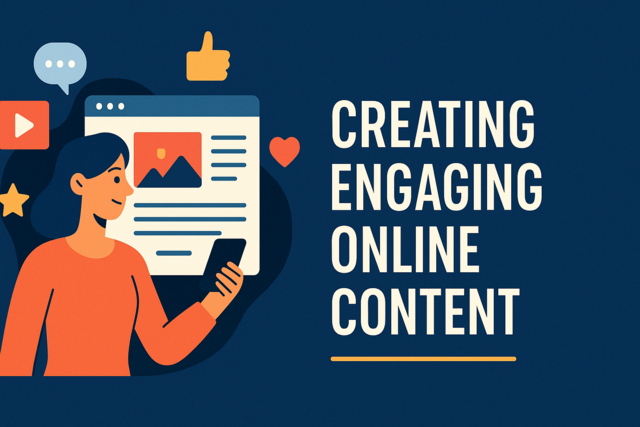 5 hours
0.5 CEUs
Creating Engaging Online Content
+ More Info
5 hours
0.5 CEUs
Creating Engaging Online Content
+ More Info
-
 4 hours
0.4 CEUs
Energy Medicine: Harnessing Your Body's Power
+ More Info
4 hours
0.4 CEUs
Energy Medicine: Harnessing Your Body's Power
+ More Info
-
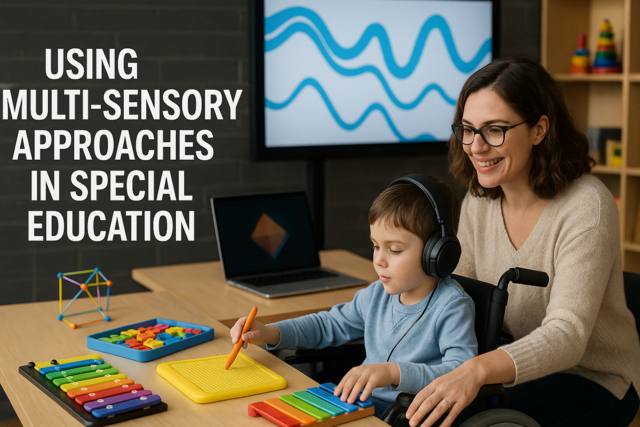 7 hours
0.7 CEUs
Using Multi-Sensory Approaches in Special Education
+ More Info
7 hours
0.7 CEUs
Using Multi-Sensory Approaches in Special Education
+ More Info
-
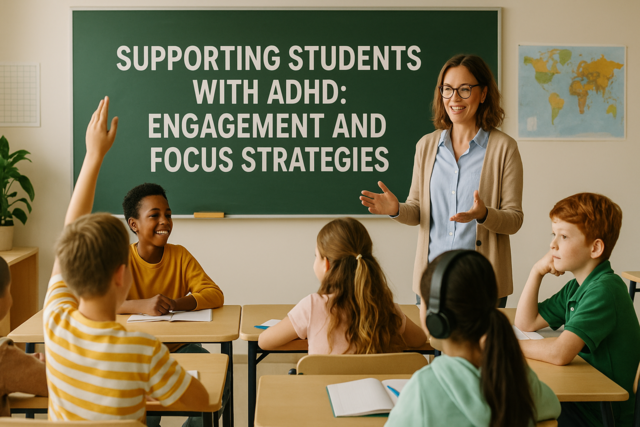 4 hours
0.4 CEUs
Supporting Students with ADHD: Engagement and Focus Strategies
+ More Info
4 hours
0.4 CEUs
Supporting Students with ADHD: Engagement and Focus Strategies
+ More Info
-
 5 hours
0.5 CEUs
Understanding Nutrition Labels and Food Choices
+ More Info
5 hours
0.5 CEUs
Understanding Nutrition Labels and Food Choices
+ More Info
-
 5 hours
0.5 CEUs
Advanced Writing and Editing Skills
+ More Info
5 hours
0.5 CEUs
Advanced Writing and Editing Skills
+ More Info
-
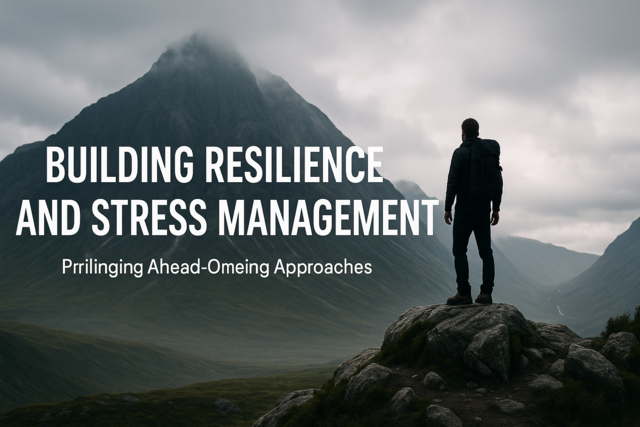 5 hours
0.5 CEUs
Building Resilience and Stress Management
+ More Info
5 hours
0.5 CEUs
Building Resilience and Stress Management
+ More Info
-
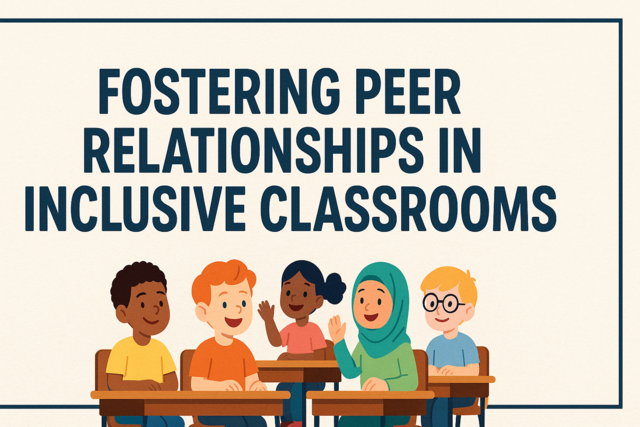 7 hours
0.7 CEUs
Fostering Peer Relationships in Inclusive Classrooms
+ More Info
7 hours
0.7 CEUs
Fostering Peer Relationships in Inclusive Classrooms
+ More Info
-
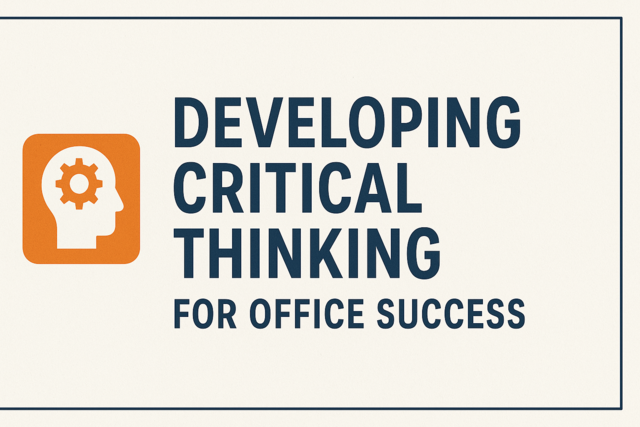 4 hours
0.4 CEUs
Developing Critical Thinking for Office Success
+ More Info
4 hours
0.4 CEUs
Developing Critical Thinking for Office Success
+ More Info
-
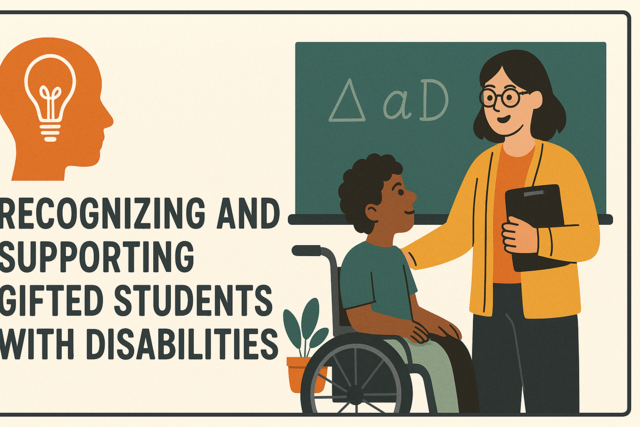 5 hours
0.5 CEUs
Recognizing and Supporting Gifted Students with Disabilities
+ More Info
5 hours
0.5 CEUs
Recognizing and Supporting Gifted Students with Disabilities
+ More Info
-
 5 hours
0.5 CEUs
Promoting Social Skills in Special Education
+ More Info
5 hours
0.5 CEUs
Promoting Social Skills in Special Education
+ More Info
-
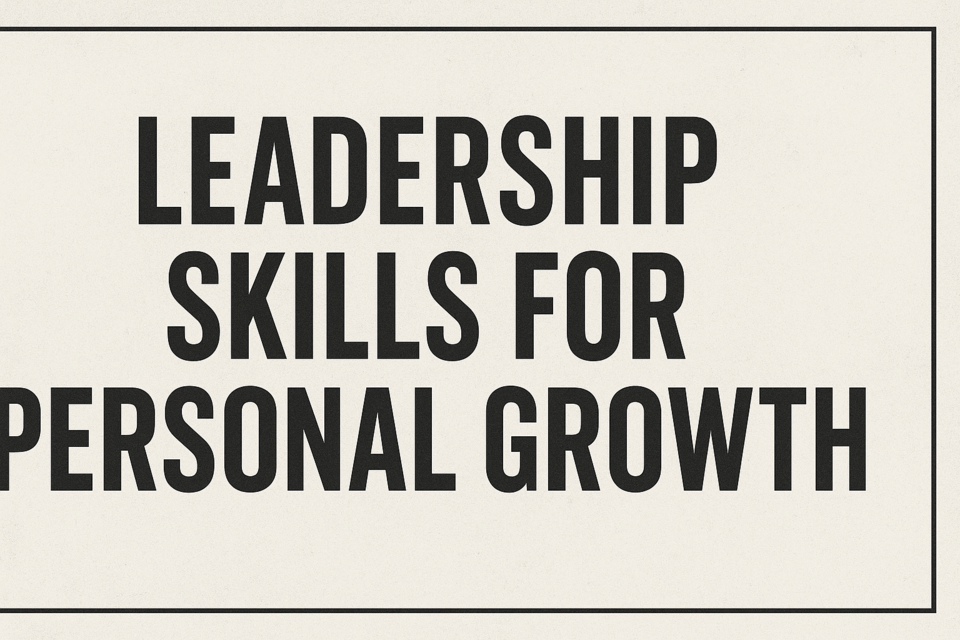 4 hours
0.4 CEUs
Leadership Skills for Personal Growth
+ More Info
4 hours
0.4 CEUs
Leadership Skills for Personal Growth
+ More Info
-
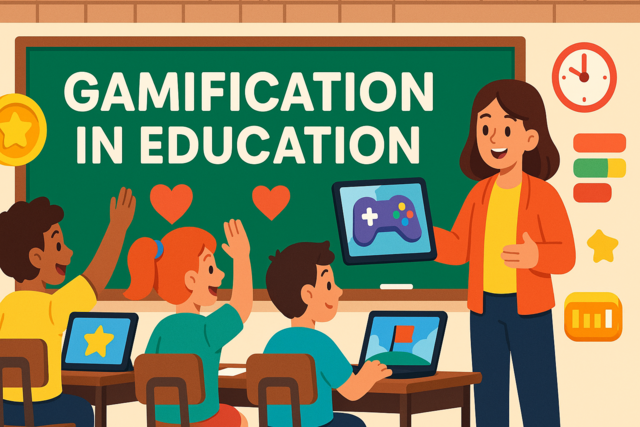 4 hours
0.4 CEUs
Gamification in Education
+ More Info
4 hours
0.4 CEUs
Gamification in Education
+ More Info
-
 4 hours
0.4 CEUs
Implementing Universal Design for Learning (UDL)
+ More Info
4 hours
0.4 CEUs
Implementing Universal Design for Learning (UDL)
+ More Info
-
 3 hours
0.3 CEUs
Beyond the Veil: Mysteries of Life After Death
+ More Info
3 hours
0.3 CEUs
Beyond the Veil: Mysteries of Life After Death
+ More Info
-
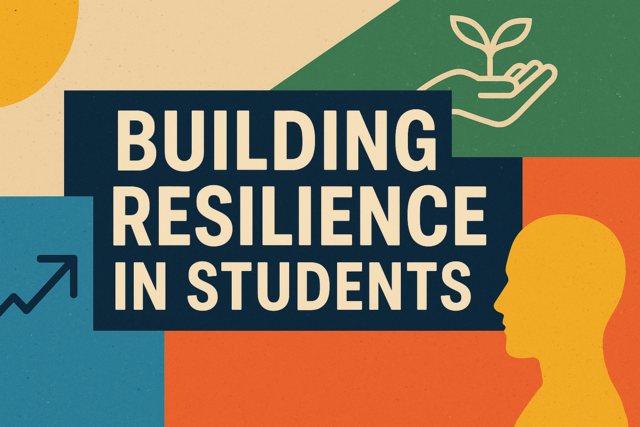 3 hours
0.3 CEUs
Building Resilience in Students
+ More Info
3 hours
0.3 CEUs
Building Resilience in Students
+ More Info
-
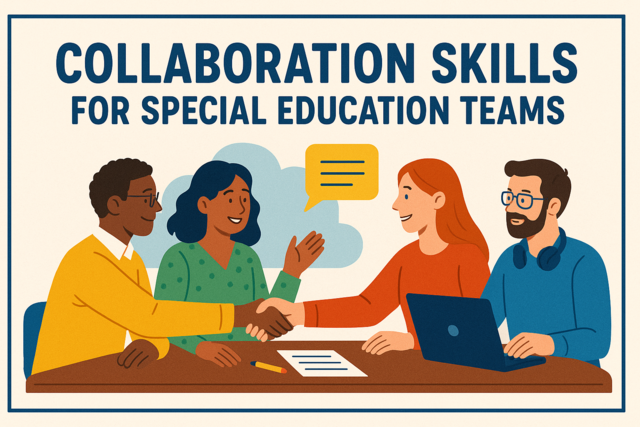 4 hours
0.4 CEUs
Collaboration Skills for Special Education Teams
+ More Info
4 hours
0.4 CEUs
Collaboration Skills for Special Education Teams
+ More Info
-
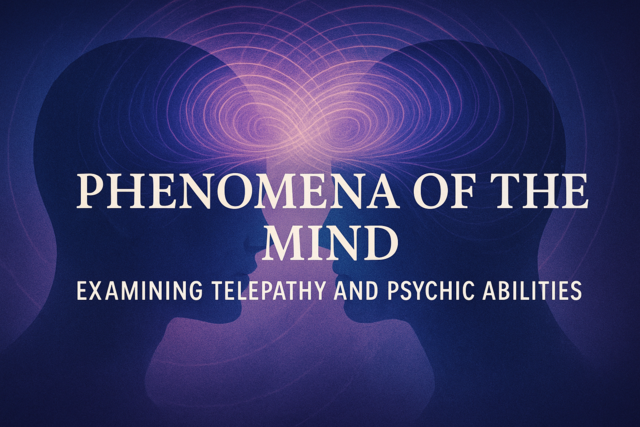 6 hours
0.6 CEUs
Phenomena of the Mind: Examining Telepathy and Psychic Abilities
+ More Info
6 hours
0.6 CEUs
Phenomena of the Mind: Examining Telepathy and Psychic Abilities
+ More Info
-
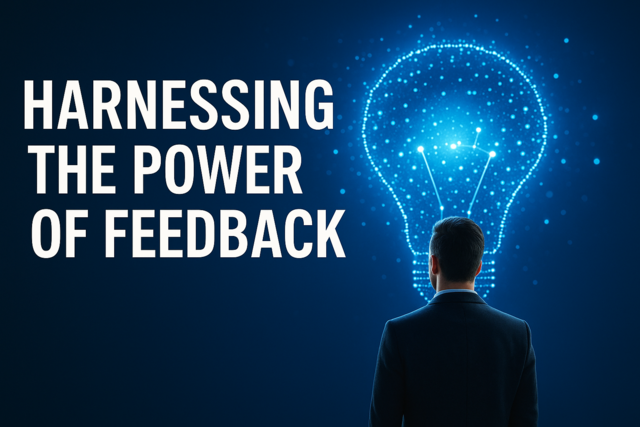 5 hours
0.5 CEUs
Harnessing the Power of Feedback
+ More Info
5 hours
0.5 CEUs
Harnessing the Power of Feedback
+ More Info
-
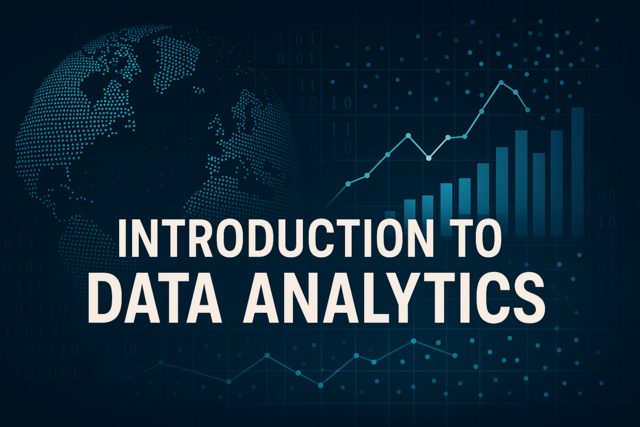 6 hours
0.6 CEUs
Introduction to Data Analytics
+ More Info
6 hours
0.6 CEUs
Introduction to Data Analytics
+ More Info


